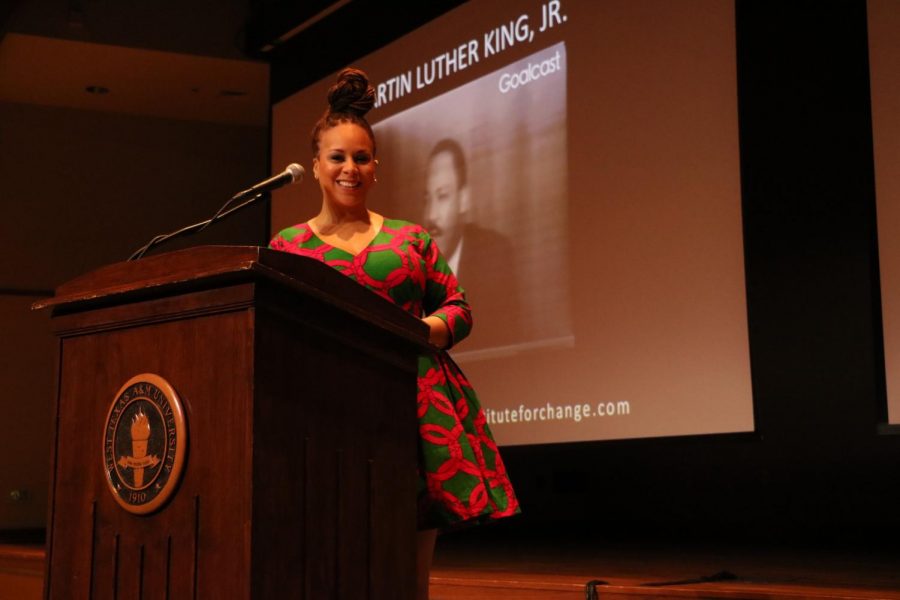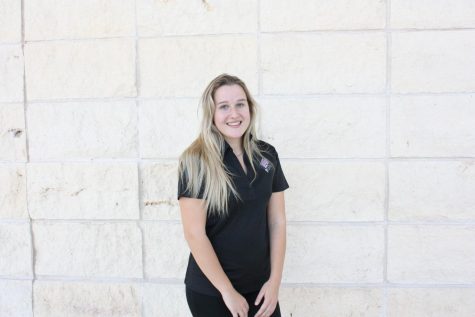Artist Yewande Austin speaks at WT’s Social Justice Conference
April 5, 2018
Independent artist, humanitarian, educator and activist Yewande Austin spoke on privilege, taking action, finding allies and the importance of love as the keynote speaker at West Texas A&M’s Social Justice Conference.
“One of the easiest things in the world is to spread kindness to another, to be there for them in their time of need, to remind them that they are valuable, to remind them that their voice matters even in spaces or in systems where so many are not allowed at the table,” Austin said. “Every morning when you wake up, you have the power to make some life-changing decisions.”
Austin shared tips, hope, and encouragement during her speech titled “Engaging with Diverse Populations in the Community” 7 p.m. Wednesday, March 28, in the Jack B. Kelley Student Center Legacy Hall. The event was sponsored by the Distinguished Lecture Series.
Austin is the founder of the Change Rocks Foundation, an organization that provides socioeconomic programs focused on empowerment through education, art and capacity building. Austin has created the documentary “Amazing Grace: Freedom’s Song” that, according to the organization’s website, “lifts the veil on global human trafficking.”
According to Austin, one woman is forced into trafficking every 10 minutes in America, 50 percent of the world population lives on less than $1.25 a day and over 60 percent of children will not graduate from high school. Her message was clear, to encourage engagement and action from everyone, even those not directly affected.
“By taking a blind eye, these issues grow and they become so ingrained in society,” said Angela Allen, chief diversity and inclusion officer. “Social justice and social equality is every individual’s responsibility to uphold and to protect.”
Austin’s activism started with her music. It was artists such as singer and dancer Josephine Baker who devoted much of her life to fighting racism and Marian Anderson, the first African-American to sing with New York’s Metropolitan Opera, that showed her the possibility to use her creativity, or “activism,” to make an impact.
“We very often overlook more understated forms of activism, like music, as powerful tools for social change,” Austin said.
As Austin discussed social conditioning to injustice, the importance of diversity and how to be an active bystander, she also provided the crowd with various exercises. The exercises were designed to create perspectives on engaging with diverse crowds, prejudice and how to deal with conflict.
Austin showed the music video for her song “War,” which she explains addresses “the negative narrative that we sometimes oppose upon ourselves.” She also provided a variety of alternative ways of traditional activism such as social entrepreneurship, voting, writing opinion editorials and “artivism.”
Austin’s motivation for her activism is the people that have fought for her and the fact that she easily could have been in the same position as the people she is helping, had she been born somewhere else in the world or to another family.
“I had somebody that fought for me, that was my mother, so I feel an enormous responsibility to be a voice for the voiceless,” she said. “When you are born into this world, you have a responsibility to leave it better than the way that you found it.”




